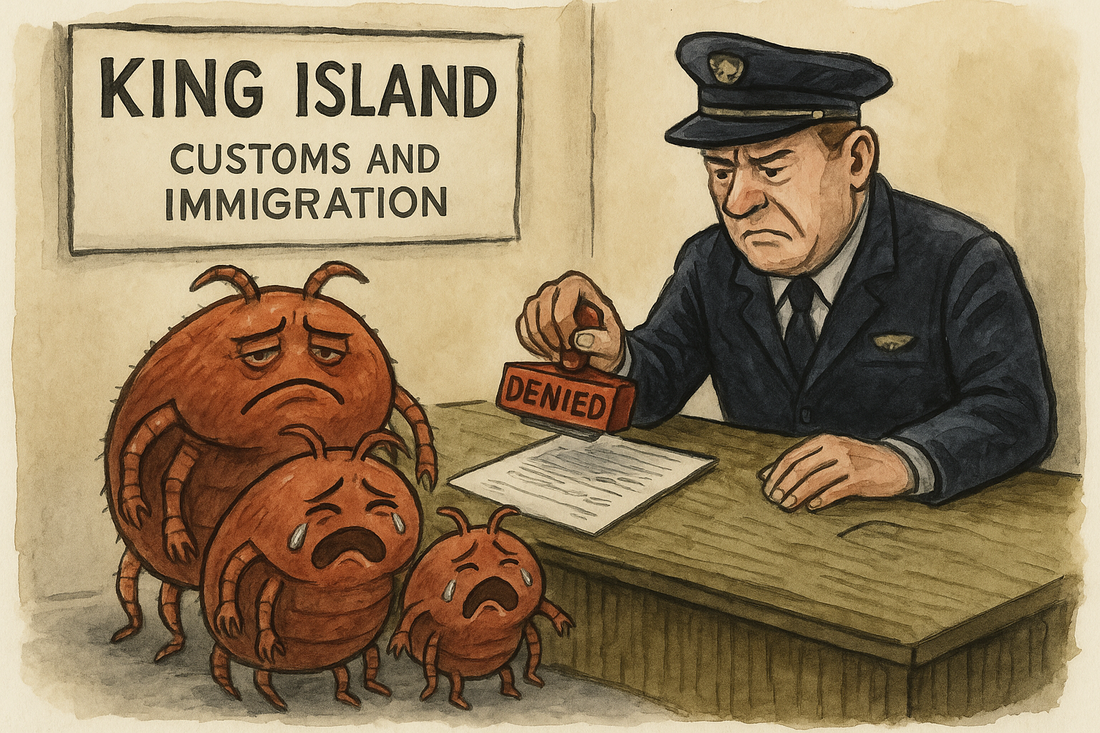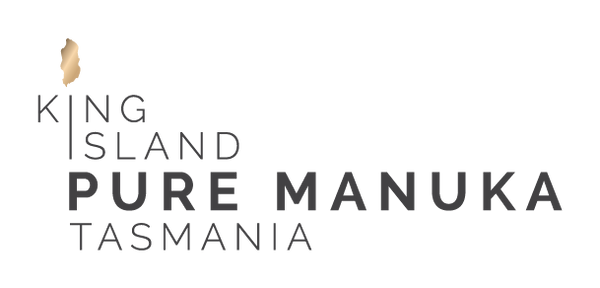
Australia’s varroa mite crisis: What you need to know
Share
By Rod Skellet
Ever since its inception, Australia's bee keeping industry has long prided itself on clean, disease-free conditions, despite this being a rarity in global apiculture.
In recent years, however, this proud record faced a serious challenge.
In mid-2022, the dreaded Varroa destructor mite, or varroa mite, was identified in New South Wales. The best efforts of authorities and beekeepers to contain and stamp it out were in vain, with the outbreak quickly spreading to multiple regions across the mainland, threatening thousands of bee colonies and much of the entire honey industry.
Thankfully, amid all the chaos and fear, one pocket of Australia remains unvisited by this nasty little pest: King Island.
Nestled in the Bass Strait between Tasmania and Victoria, this pristine little windswept isle has always stood apart — geographically, environmentally, and now, biologically. It is home to one of the last truly varroa-free bee populations in the country, and possibly the world.
For King Island Pure Manuka, this isolation has always been a strength. Today, more than ever it’s a total game changer, ensuring that we continue to provide some of the purest Manuka honey available for people who increasingly depend on it.
What is Varroa Mite?
Varroa mites are tiny [external] parasites that attach to honeybees, feeding off their fat stores and compromising their immune systems. They also act as vectors for deadly bee viruses, known to destroy entire colonies if left to their own devices.
In countries like the United States and New Zealand, varroa has been a destructive force for decades. And until recently, Australia was a global anomaly — the last major beekeeping nation free of this pest. That changed in 2022.
Once the mite was detected near the Port of Newcastle, an aggressive eradication campaign was set in train. Hives were destroyed with ‘movement zones’ established. But despite these efforts, the infestation has spread across large parts of NSW and into Queensland and Victoria. Many bee farmers have been forced to apply costly chemical treatments, with the unluckiest seeing their once-thriving colonies collapse completely.
How is varroa mite treated?
The standard response to varroa infestation involves a cocktail of miticides — powerful chemical compounds designed to kill or repel mites. These include synthetic pyrethroids, organophosphates, and other acaricides. While effective to some degree, these chemicals carry risks.
For starters, overuse can lead to mites developing chemical resistance, pushing farmers into a constant cycle of toxicity. And residues can sometimes be found in honey, which should concern anyone seeking a truly natural, health-promoting product. Also, the constant exposure to synthetic treatments places bees under significant stress, undermining their longevity, productivity, and general wellbeing.
Pristine King Island: Nature’s Fortress
King Island, by contrast, is a different world. Flanked by ocean, with strict biosecurity protocols and no commercial farming nearby, the island is one of the few places on earth where bees can live as nature intended — happy, wild, resilient, and untouched by modern plagues like varroa mite.
For King Island Pure Manuka, this creates an extraordinary advantage.
Our bees are not chemically treated with pesticide products, and don’t suffer from the stress of invasive pests. They forage freely across a mono-floral landscape dominated by pristine Leptospermum scoparium (Manuka) bushes. The result? Exceptionally pure, potent, certified honey naturally high in MGO and other active compounds for better health, wellness and of course taste.
What defines a truly pure Manuka honey?
King Island Pure Manuka honey is fully certified by the Australian Manuka Honey Association and University of Sunshine Coast. It contains no artificial additives, no chemical residues, and no compromises. Every spoonful represents the hard work of healthy, happy bees doing what they do best, in one of the most pristine environments on the planet.
This isn’t just about superior flavour or a cleaner label. The integrity of our bees directly affects the nutritional and therapeutic qualities of our honey. Free from the stress and systemic impacts of varroa mite, our bees produce a honey that’s richer, more stable, and more effective — whether you're using it for daily wellness, natural wound care, boosting your immune system through winter, or just its amazing taste.
Local solution to varroa mite
The spread of varroa mite is more than just a beekeeping issue. It’s a reminder of how fragile our natural systems can be — and how vital it is to protect places like King Island.
As global honey supply chains face increasing pressure from disease, contamination, and overprocessing, King Island Pure Manuka stands as a beacon of what’s still possible: true purity, minimal intervention, and a deep respect for the natural world.
When you choose King Island Pure Manuka, you’re not just buying honey. You’re investing in a way of life that places bee health, environmental stewardship, and human wellbeing above all else.
International bee day
With International Bee Day falling earlier this month, King Island Pure Manuka wants to remind you that it takes a different path to the common ‘fast fixes’ and synthetic solutions favoured by many in the industry.
Our bees are free. Our honey is clean. And our promise is simple: the best of nature, delivered to your door.
As the varroa mite continues to spread across the mainland, the story of King Island isn’t just one of isolation — it’s also a story of inspiration and pride. A tiny island, untouched by plague, producing some of the world’s purest honey. For your health. For your family. For the future.
Explore our range of premium, chemical-free Manuka honeys and discover the health and wellness benefits of purity you can trust.
Visit our shop now and choose the perfect honey for you.
